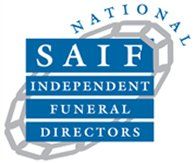Guideline for an easy funeral process
Funeral advice in Basingstoke
Jonathan Williams Independent Funeral Directors offers advice and guidance on what needs to be done when someone dies. Take a look at the details below. If you would like to speak to one of our funeral directors, give us a call today.
Here are a few tips on what to do when someone dies
At home
Contact us
When someone passes away at home you must contact the deceased's doctor. They or the duty doctor will visit and confirm that the patient has passed away. Once this has been confirmed you should then contact us (we are available 24 hours a day) and we will make arrangements to bring your loved one into our care. The deceased’s doctor will issue a Medical Certificate of Cause of Death, this may not be available until the next day. You will need this to register the death.
At a nursing home
The staff will arrange for a doctor to visit. Once the death has been confirmed by a doctor, the nursing home will contact us to make arrangements to bring your loved one back into our care. The deceased’s Doctor will issue a Medical Certificate of Cause of Death, this may not be available until the next day. You will need this to register the death.
In hospital
The doctor, who attended the deceased, will issue a Medical Certificate of Cause of Death. The Bereavement Office will contact you and will advise you when the certificate is available for collection and arrange an appointment to collect it, and any personal effects. You will need this to register the death.
When someone dies unexpectedly
If a death is unexpected or the deceased has not been seen by their doctor within the last 14 days, the coroner may become involved. It is the Coroner's duty to investigate all unexpected and sudden deaths. This may mean a post mortem examination is carried out to establish the cause of death and possibly an inquest, although this is not always the case. We will guide you through this along with the Coroner's officer. In some cases, the Coroner will refer the death back to the deceased's doctor and no further tests are required.
Registering a death
The death must be registered within 5 working days of the death. Following the death, if the doctor can certify as to the cause of death, The Medical Certificate of Cause of death will be issued. You will need to make an appointment with the registrar and take along the certificate. This will be exchanged for another certificate that is green in colour known as the Registrars Certificate for Burial or Crematorium. This certificate must be handed to us for the funeral to go ahead and will be forwarded to the Crematorium or Cemetery. If the death was sudden or a doctor has not seen the deceased during the last 14 days, the Coroner may need to be involved and we will get any paperwork we require directly from the Coroner’s Office. We will advise you along with the Coroner's officer on what you need to do regarding registering.
The registrar will also provide you with a Certified Copy of an entry in the Register of Deaths (white form). This certificate is often referred to as the 'Death Certificate' and you may need this for official purposes such as closing bank accounts, Will, pension claims, insurance policies, etc, all will need to see the original certificate. You are able to purchase as many copies of the certificate as you require. It is advised that you obtain these on the day as after the appointment the charge is increased. If you would like more information, contact us today. To make an appointment to register a death, please call the Hampshire Registration Service on 0300 555 1392.
A tell us once service
This is a new Government initiative which aims to ease the burden of notifying multiple local and central Government departments that a death has occurred as they will contact the organisations that need to know on your behalf. It would be helpful if you took the following documents/information along with you:
- The medical certificate of the cause of death
- The deceased's medical card, if possible
- The deceased's National Insurance Number, Birth and Marriage Certificates, if available
The registrar will ask you:
- The deceased's first names and surname (and the maiden name, where appropriate)
- The full postal address of the deceased
- The deceased's date of birth (town/county if born in the UK, country, if born abroad)
- The place and date of death
- The deceased's occupation and name and occupation of their spouse
- If the deceased was married, the date and place of birth of the surviving widow or widower
If you would like more information, contact us. We can help you arrange the perfect funeral
to suit your loved ones wishes.



